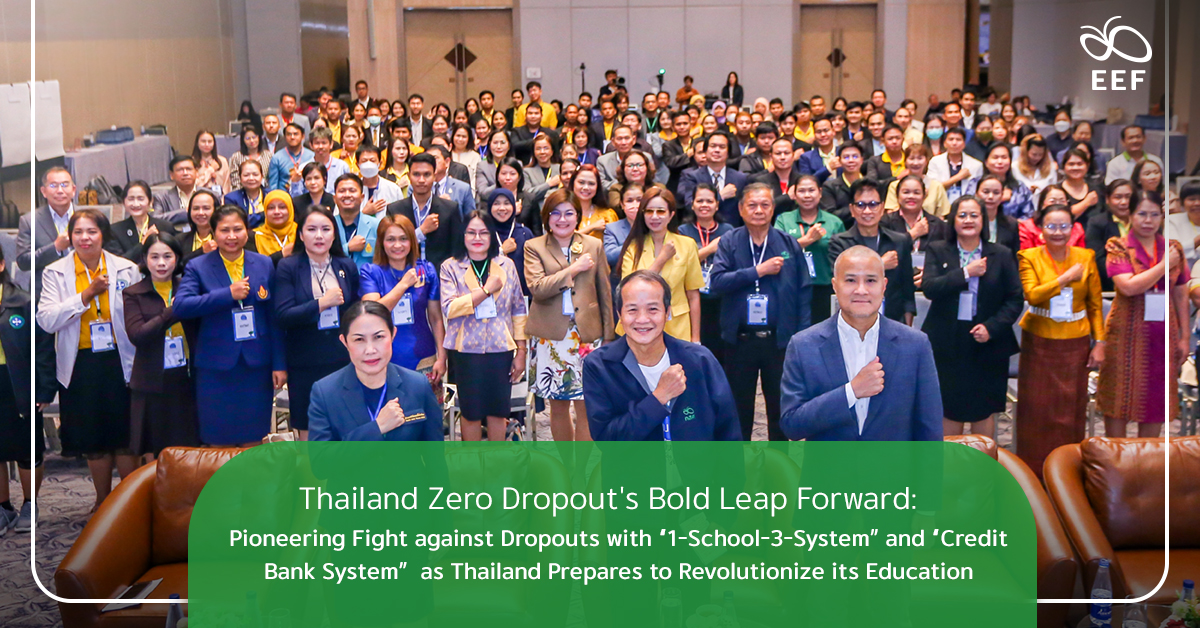
Spearheaded by Prime Minister Srettha Thavisin’s advocacy, Ratchaburi Province takes bold strides to revolutionize education, cementing its status as a beacon of hope in the fight against dropouts. With a staggering 100 million Thai Baht raised during his private-sector tenure, the Prime Minister galvanized support for the “Ratchaburi ZERO DROPOUT: All Children Go to School” project, catalyzing transformative changes within the educational landscape. At a pivotal gathering within Ratchaburi City Hall, attended by a whole host of provincial officials, the Prime Minister underscored the indispensable role of education, emphasizing the tangible impact of the Zero Dropout initiative, now in its third year of implementation. Calling upon large corporations to bolster provincial endeavors, he rallied support for reintegrating dropouts back into the educational system.
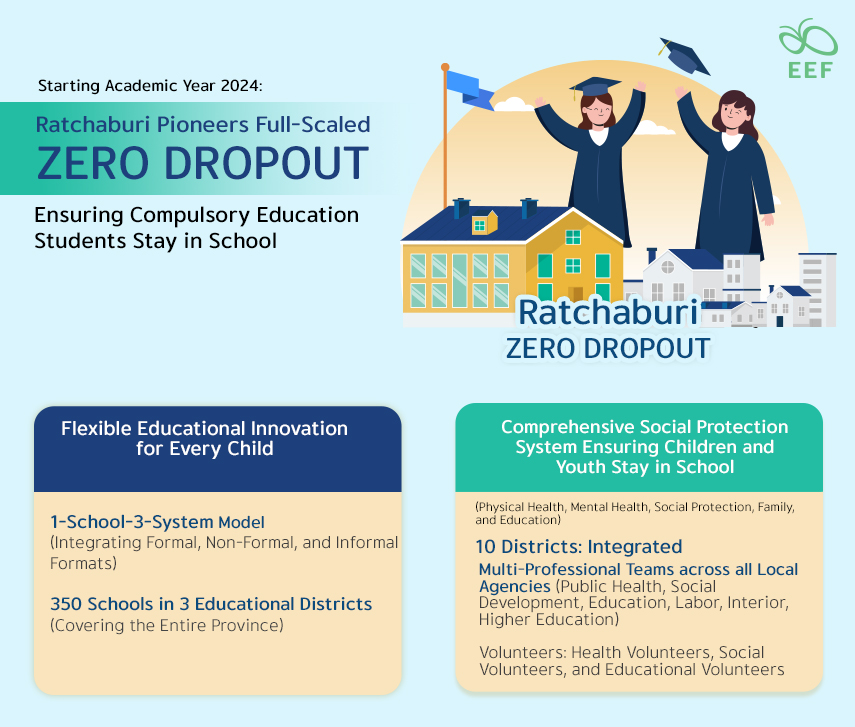
In the groundbreaking collaboration between Ratchaburi Province, the Equitable Education Fund (EEF) Thailand, and Sansiri Public Company Limited, over 8,769 children and youth, aged 6-24, have been safeguarded within the educational system. For the upcoming 2024 academic year, Ratchaburi Province stands poised to pioneer the full-scale implementation of the Zero Dropout initiative. With concerted efforts from the Ratchaburi Provincial Education Office, three educational districts, local administrative organizations across ten districts, and various professional and volunteer cohorts across the province, the province is steadfast in its resolve to ensure not a single child or youth slips through the cracks, leveraging novel innovations and mechanisms honed over three years of dedicated development.
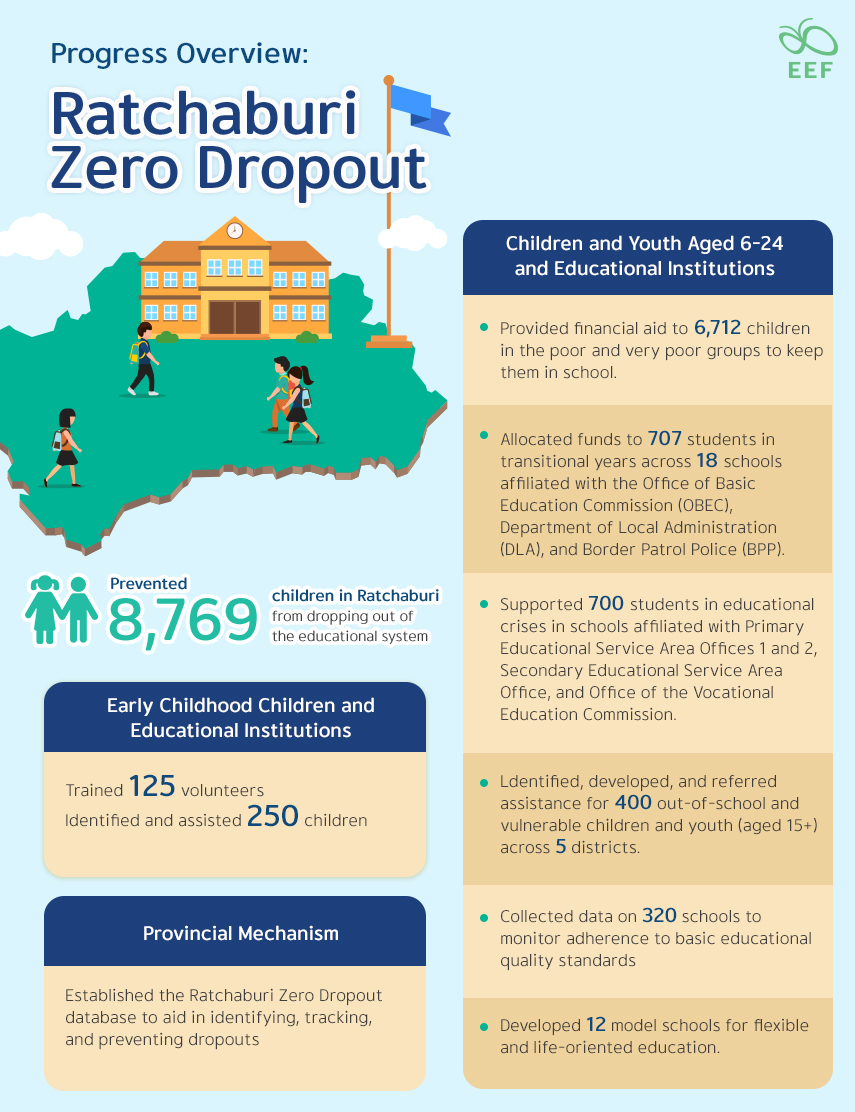
Ratchaburi’s educational landscape has been transforming with the advent of flexible educational innovations, epitomized by the revolutionary “1-School-3-Moedels” approach. Seamlessly integrating formal, non-formal, and informal educational modalities, this paradigm shift caters to the diverse needs of students. Now embarking on an ambitious expansion, this model will find its way into 350 schools affiliated with the Office of Basic Education Commission (OBEC), across three educational districts. Simultaneously, local administrative organizations across ten districts will lay the groundwork for comprehensive social protection systems, nurturing the holistic well-being of children and youth. Spearheading this endeavor is the establishment of a “Case Management System” (CMS) committee, working in tandem with volunteer networks to identify and support out-of-school children in every community.

Meanwhile, in response to the Prime Minister’s call for action on National Children’s Day 2024, the Ministry of Education (MOE) is set to initiate a comprehensive strategy to bolster flexible educational management. This includes drafting a practical guide for the innovative “1-School-3-Models” framework and launching a “Credit Bank System,” collectively aimed at fostering inclusivity and preventing dropouts. Additionally, a pivotal workshop titled “Pathway to 1-School-3-Models Model: Flexible Education for Dropout Prevention,” organized by the EEF, recently convened to galvanize support for this groundbreaking approach.
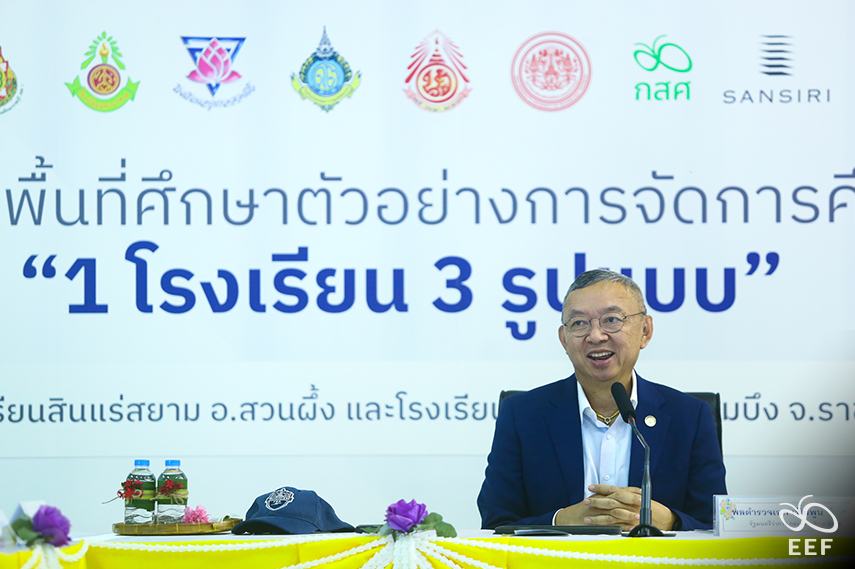
Traditional educational models, while dependable, inadvertently contribute to dropout rates by failing to address diverse learning needs. The National Education Act of 1999 delineates three education formats: formal, non-formal, and informal education, allowing their standalone or combined use. Despite this, socio-economic barriers can still prevent some students from accessing traditional schooling. Education, a cornerstone of societal progress, nurtures both excellence and life stability and epitomizing this dual objective is the “1-School-3-Models” model, striving to prevent dropouts by ensuring equitable access to education for all, all in line with the “Happy Learning” policy. This innovative model transcends conventional boundaries, acknowledging the evolving role of educators from knowledge transmitters to mentors guiding students in essential life skills. The MOE is currently formulating operational guidelines to ensure nationwide consistency in implementation. The workshop illustrated how schools can adopt the “1-School-3-Models” model, encouraging the participants to apply these methods in their institutions. This collaboration is a positive step toward expanding these practices, with workshop participants expected to adapt the model to their institutions as appropriate.
Additionally, the MOE is also pursuing structural changes to achieve the Thailand Zero Dropout goal. In May 2024, the credit bank system, developed in collaboration with the OBEC and the Vocational Education Commission, was launched. This system has integrated diverse subjects into core learning, allowing students to convert their skills, competencies, and experiences into academic credits and accumulate them for graduation, further education, or career advancement. Curricula will be in alignment with the rapid changes of the modern era, with an emphasis on short-term, flexible courses that can be continually adapted. As the focus shifts from formal qualifications to essential skills, including cooperative living, basic knowledge, and vocational competencies, the credit bank system will prevent dropouts by adapting education to learners’ lifestyles.
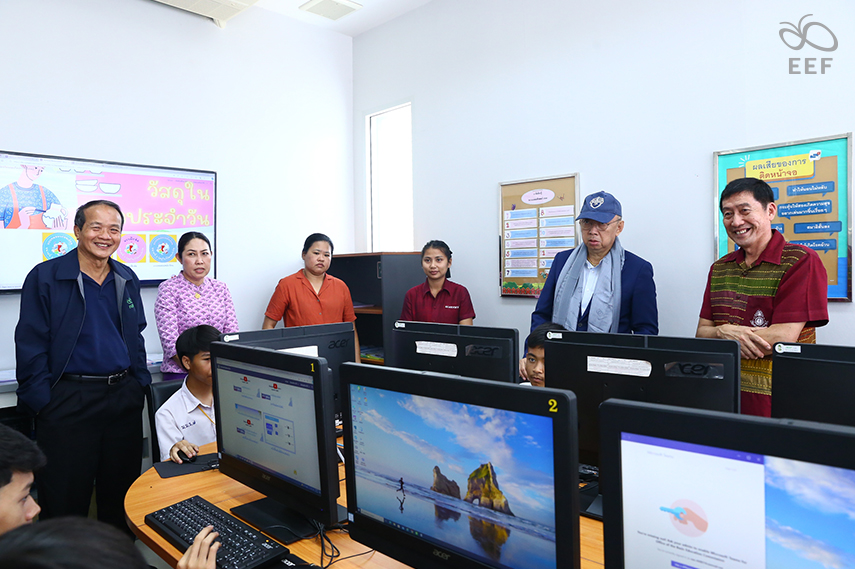
In this transformative journey, the collaborative efforts of Ratchaburi Province, the Equitable Education Fund (EEF) Thailand, and key partners like the Ministry of Education (MOE) and Sansiri Public Company Limited are redefining the educational landscape of Thailand. The Thailand Zero Dropout initiative epitomizes the mission spearheaded by the EEF to provide equitable education for all, fostering a more inclusive and adaptable learning environment. As Ratchaburi pioneers these groundbreaking educational reforms, the province sets a precedent for the country, showcasing that with unwavering commitment and innovative strategies, every child can be given the opportunity to thrive to their full potential. The combined force of the “1-School-3-Models” model and the credit bank system heralds a new era in Thai education — one where no learner is left behind, and the promise of a brighter future is within reach for all.

